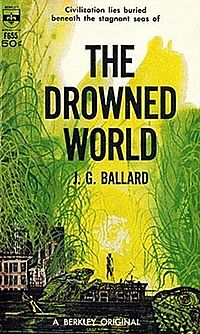[The rush of modern technologies has created whole new industries, one result of which has been the breaking down of traditional barriers, as Ms. Lucas will illustrate…]

by Victoria Lucas
As a child I learned that there were expectations. Not so much rules. I don't remember being taught rules except for rules of grammar or other school subjects, including physical education class. Those Expectations determined What You Did, Who You Were, and other facets of one's life including Who You Know.
My encounters with Expectations came to a head on two occasions that I remember in my childhood, one when I was somewhere between 6 and 8, and one when I was 12. When I was 6, maybe 7, I remember sliding out of bed on the way to getting up and, with my head touching the floor but my legs still on the bed, having the epiphany that I was responsible for my own actions–not my parents or anyone else. Obviously it took me some time to work out the ramifications of this, but I had the basic concept, anyway.
When I was 12, I discovered that I was A Girl.
This hit me like a heavy blow. Suddenly lots of things were excluded from my future. Girls didn't do science or compose music. Girls were nurses, assistants, secretaries, and so on, but not generally People of Importance unless they were actresses. Even then they were inferior to Actors, and people didn't really take them seriously. I had never heard of Hedy Lamarr, and I don't remember knowing anything about Eleanor Roosevelt or any of the women who have been resurrected from European
culture as having had something to do with their own futures.

As a teenager I ran into the Girl thing again when my high-school counselor specifically delimited my career choices: secretary, wife and mother, waitress, teacher, or nurse. That was it. I had to choose among those. Since I had no boy friends, couldn't remember a food order even after I myself had made it, and was squeamish about blood, that left secretary and teacher. I kind of held onto "teacher" for awhile since there was nothing I could do about it till I finished college. So I took secretarial courses, sacrificing a third year of my beloved Latin to be sure I could get a Job after high school. A Career? Now that was something totally unknown. Mostly those were Men things. I haven’t got the hang of those yet.
I was never given the results of the intelligence test I took when I was in school. I don't think anyone paid any attention to it (possibly the Girl thing, but it never occurred to me it might be a “Spic” thing too, given my name.) I tended to be a Teacher's Pet, but that wasn't an advantage. Socially it was a bad disadvantage, and it took getting through a few grades to latch onto that concept. So I accepted my father's preference of a nickname ("Vicki" for "Victoria"), learned to be very vague about answers to any question like "So how'd you do on that test?" and was careful to be ready to expound on anything we had to have read before class.
This gave me the reputation in high school for being happy to explain anything to anybody in the minutes before class started so they could rush it onto paper and onto the teacher's desk, making homework out of it. And the further nickname "Encyclopedia." Classmates would tackle me on the way to class, and I would move slowly to the classroom door followed by people asking me to regurgitate the day’s book report or lesson. So I was trying to avoid other peoples' Expectations – for instance, being smart made one Stuck Up.
I tried to go to parties, but my Expectations that these would be rational and enjoyable events were ruined the first time someone drove me to a drunken high school shindig. I think I went to two parties
during high school and regretted going to both of them, not because anything bad happened, but because I realized I didn't know what Fun was, and I was terrified of the driving my rides exhibited.
My idea of Fun, as it turns out, has a lot to do with foreign movies (including British "Carry On" comedies) and some few American ones, along with reading, writing, research, and intellectual company. Also with interesting music, and my idea of "interesting music" turns out to be very strange. Last summer at Stanford I took an Introduction to Music course to round out my summer units.
Sitting at the back of the practice theater in the basement of Dinkelspiel, I would nod off to the strains of Beethoven or others of the (to me) boring 20th-Century Canon—which was mainly what was being taught. I should explain, since like as not the “20th-Century Canon” will not be a term with which most people are familiar. It refers to the works in Western culture that are considered to be worth teaching. In music it refers to what people call “Classical Music”– the “three Bs,” Bach, Beethoven & Brahms, but also the rest of the “important” male composers who made European music from about 1600. From the time I began to occupy my own piece of the house (built for my uncle and aunt before they left) I played records, starting with my mother’s 78s and finishing with all the ones in the public library—over and over. I knew all the stuff in the course. I just was having it organized and analyzed for me.

But, as the last thing he did in the class, the instructor introduced "tape music" to us by telling us that it was the latest thing, putting a tape recorder on a chair in the middle of the stage, starting it up, and walking off. Now, I know what a tape recorder is. Here’s the little portable number I used to do sound for Bob Hammond’s “Solitaire” and “Bon Voyage” and Robinson Jeffers’s “Cretan Woman” at the Playbox Theatre. It only weighs 25 lb.

My friend and mentor Barney Childs wrote the incidental music for those. But this …
As I sat listening, the music spilled out of the machine and over the apron, into the orchestra pit. Since music has no gravity, only levity, it went UP the aisle stairs all the way to me in the back and swirled around my ankles before it receded.
I haven't been the same since. Neither have my Expectations. This time, the only thing that being A Girl has to do with it is that I don’t even remember whether the composer was male or female. It didn’t matter. Whoever it was spent perhaps hundreds of hours recording, rerecording, treating recorded sounds, whether music or any sound, as material to be distorted, slowed down, twanged and edited with the same little razor-blade kit that I use, then rerecorded onto a final reel of tape that would bear all the machinations of the composer. This was new.
It was a hallucinatory hopestorm that drove that music up the aisle. There is still room for the new, even if it’s female. Even if it’s me.
















